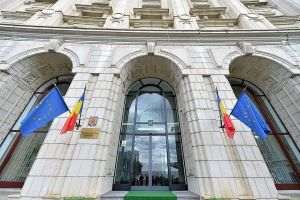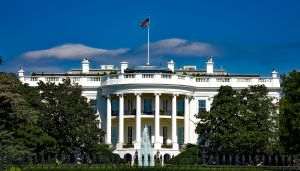Three media people (I find it hard to call them journalists) were trying to outdo each other in presenting comparative calculations originating from the specialists of the NBR, proving using arithmetic that loans denominated in CHF have been more advantageous than those denominated in lei and Euros, even after the unprecedented explosion of its exchange rate against the other currencies, including against the leu.
One of the media people has been hired for PR (the allegedly restructured one) of the NBR, expresses his opinion on his own blog, where he gets paid to advertise Erste Bank (I don't know, is that legal, is that illegal?, I won't even waste my breath discussing whether it's moral).
The second is published on the website called "OpiniiBNR.ro", (which, contrarily to any assumptions based on its own name and on common sense, claims that it does not represent the opinions of the NBR).
The third..., yes, the third is the only one who is employed by a financial publication, whose articles are published by the newspaper that he employs them, and which has a complex situation; the newspaper in question is part of the Mediafax group, which has been charged with tax evasion, which has enormous and constant debts to the state budget and which has pledged all of its trademarks with ING Bank, as collateral for a loan taken in 2001, which has been constantly rolled over and never paid back.
I have mentioned the authors' situation, in order to explain why I call them "media people", instead of journalists.
Still, eventually, in a debate of ideas, it doesn't matter who writes something and what they are, it doesn't matter whether they write freely or sincerely or hypocritically and forced by their circumstances or out of contractual/personal interest, what matters is whether the ideas they are expressing are valid.
I wrote "ideas", not "calculations".
I won't examine the calculations, they may be valid, I don't care.
They are made as a consequence of an idea and the idea behind them is the only one that draws my interest.
The idea is wrong.
In all of those three cases, the media people want to claim that the burden of the CHF borrowers is not any greater than that of borrowers in lei, dollars or Euros, in fact, in some cases it is even smaller.
Maybe.
I have no idea how one can extrapolate from a Boolean statistic that the suicidal person who set themselves on fire at Raiffeisen Bank Iaşi, claiming that they lost everything following the loan, is some retard who couldn't realize how well off he was.
Arithmetic isn't my subject.
The idea behind the calculations is egalitarian, (if not outright communist), trying to prove the equivalence of the loan burden between different categories of borrowers, as if the authorities are only supposed to intervene in the case of an inequality between the categories of borrowers.
No, that is not an obligation of the authorities of the state.
I think everyone agrees to that, regardless of whether they are bankers or borrowers.
If we agree that the authorities do not have the obligation of intervening to ease the burden of loans, then the "articles" of the three media people are null and void.
Similarly, the calculations made by the specialists of the NBR in that regard are useless - a waste of time.
Another rudimentary idea is circulating among the media people: why should borrowers be discriminated against, in favor of a specific segment, that of CHF borrowers?
I don't even feel like bothering with this one - isn't it boring to mention over and over again that the exchange rate jump in early 2015 is an unprecedented monetary mutation?
I think even my dog noticed the event, because he was howling at the moon in the evening of January 15th 2015.
Many people say that the event in question was unpredictable.
Sure, it was unpredictable for those whose religion has reassured them that the Swiss Franc was the one true God.
But for any bank that had an analysis department, the explosion of the Swiss Franc was predictable.
In short, the internal mechanism of that bomb is as follows.
The panic started by the financial crisis, which caused the currencies (and gold) to become quicksands, made the world turn towards the Swiss Franc, which is considered a stable currency, found in the hands of a wise and experienced government.
Naturally, the inflows of foreign currency, being converted to francs, has made the latter more expensive, and consequentially hit Switzerland's exports - Swatch watches and chocolate and the like.
But since exports accounted for 70% of Switzerland's GDP and as a result, the wise and experienced leaders decided in 2011 to set a fixed exchange rate, of 1.2 Swiss Francs, for 1 Euro.
The wise and experienced leaders didn't foresee that this would cause stronger demand for francs, a pressure which caused them to issue more currency and to fill up on foreign currencies-denominated reserves, in 2014, with an equivalent value of half a trillion Euros.
Which was a bit much in relation to the Swiss economy, about 70% of the GDP.
Towards the end of that year, in November, it was decided through a Referendum that the international reserves would not be increased further, due to the fear that issuing additional francs would cause a wave of hyperinflation; moreover, the prospect of the European Central Bank increasing the money supply, as part of the "quantitative easing program" didn't bode well for the Swiss National Bank, (SNB), essentially making the fixed exchange rate against the Euro impossible to maintain, if Euros weren't issued to the same degree that the SNB printed francs; and the constant depreciation of the Euro has created overwhelming problems in the commercial exchanges with the US and India (whose currencies had gained 12% and 10% respectively, against the Euro, to which the Swiss franc was pegged).
This is, in short, the story behind the decision of the Swiss National Bank to drop the fixed exchange rate of the Swiss franc against the Euro.
What followed was a financial tidal wave, which swept across the planet.
In Romania, loans denominated in Swiss francs had been initially contracted, in 2007, at an exchange rate of 1.9 - 2.1 lei for one franc, and the exchange rate had swung dramatically by December 2014, to 3.7 lei, for a franc; the explosion of the Swiss franc in January 2015 further took the exchange rate to 4.1 - 4.3 lei.
Why is this all this backstory important?
Because the mechanism of the bomb is accessible to analysts in banks, but not to borrowers among the population, who legitimately have other concerns than watching the accumulation of tensions in the Swiss monetary system and the details of the billiards game of the global financial crisis.
Because even though it illustrates a mechanism that is accessible to bank analysts, they have disregarded it, and they were content to settle for the slogans claiming that the financial crisis had been left behind, meaning that they offered toxic products with complete recklessness and lack of responsibility towards their customers, which went as far that even top bankers got stung by borrowing in Swiss francs.
Because the population was sold on borrowing in Swiss francs, through deceiving ads by banks, in which the Swiss franc was being praised as a "stable currency", even though it only was stable in relation to the Euro.
Because after it became obvious that the Swiss franc was under pressure, bankers did not warn their borrowers and not even after the exchange rate disaster that occurred in January 2015, they did not implement any measures to save their customers.
From a logical point of view, this law of conversion should have logically been passed before the Law of giving in payment, which, could have possibly been less necessary afterwards, and the pressure to pass it would not have been exerted further.
The reversal of the logical order of these two laws came as a result of the bankers' bad faith.
It is natural for fraud to be punished.
For that reason alone, banks deserve the law concerning the conversion of CHF denominated loans to lei at the historic exchange rate.
This is the first opportunity I have found to express my opinion on the law of conversion.
But I have to mention that both laws - that of giving in payment and conversion - are nothing but superficial manifestations of a magma that boils under the banks' cauldron, and maybe some other time, the opportunity will arise for me to explain what I think we are heading towards, regardless of how reckless or not the bankers may be.




























































